
Image
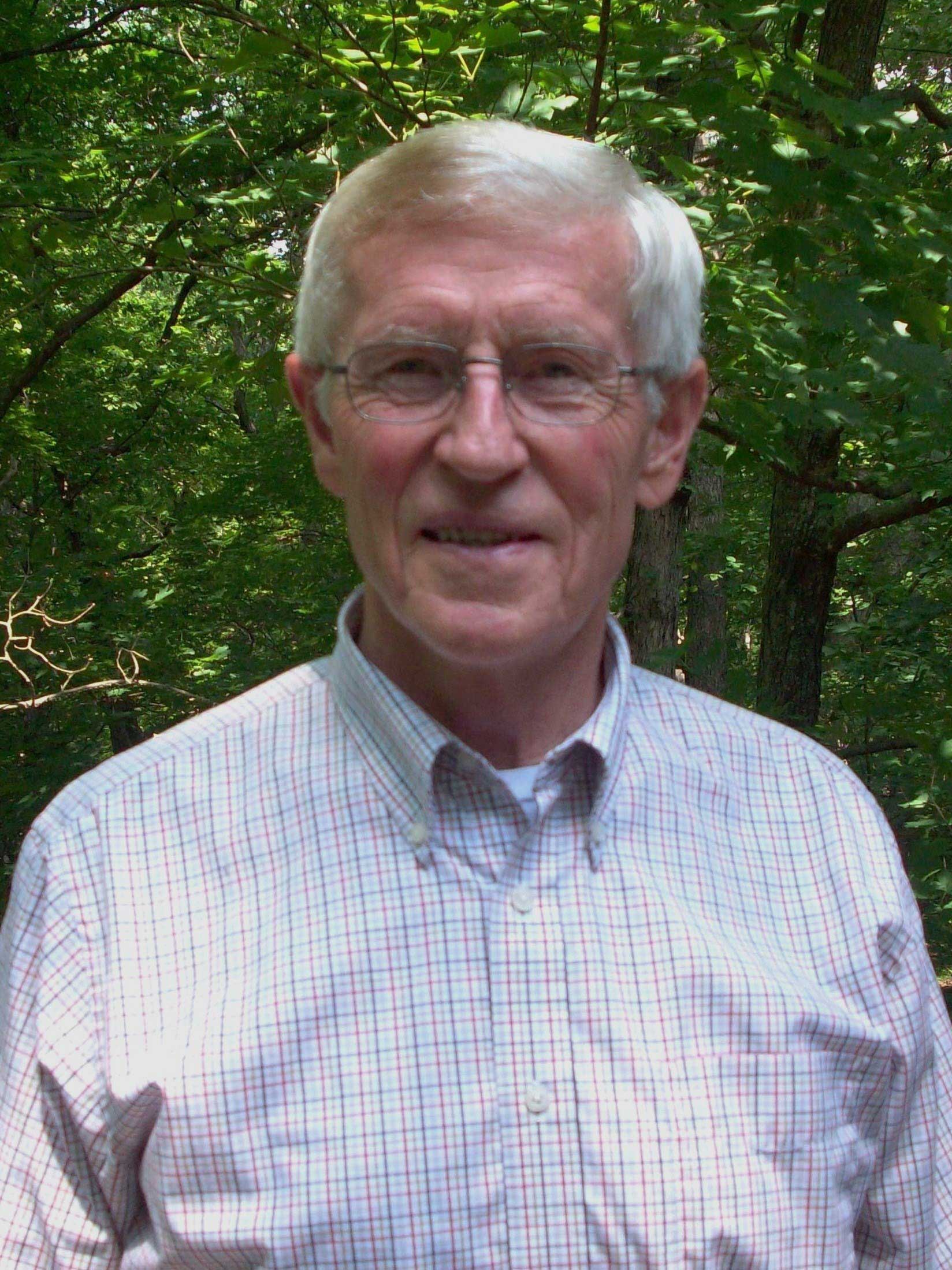
Dr. John Ikerd

Professor Emeritus, Agricultural Economics
University of Missouri Columbia
Drawing on over 30 years of experience at the forefront of the food systems movement, Dr. John Ikerd will synthesize key messages and next steps into a call to action for an empowered and thoughtful place-based food systems movement.
John was raised on a small dairy farm in southwest Missouri and received his BS, MS, and Ph.D. degrees in agricultural economics from the University of Missouri. He worked in private industry for a time and spent thirty years in various professorial positions at North Carolina State University, Oklahoma State University, University of Georgia, and the University of Missouri before retiring in early 2000. Since retiring, he spends most of his time writing and speaking on issues related to sustainability with an emphasis on economics and agriculture. He is author of six books which are available through Amazon.com via http://johnikerd.com/books. In 2014, Ikerd was commission by the Food and Agricultural Organization of the United Nations to write the regional report, “Family Farms of North America,” in recognition for the International Year of the Family Farming. He currently resides in Fairfield, IA with his wife, Ellen, two dogs, and two cats. More complete background information and a wide selection of writings are available at http://faculty.missouri.edu/ikerdj/ or http://johnikerd.com.
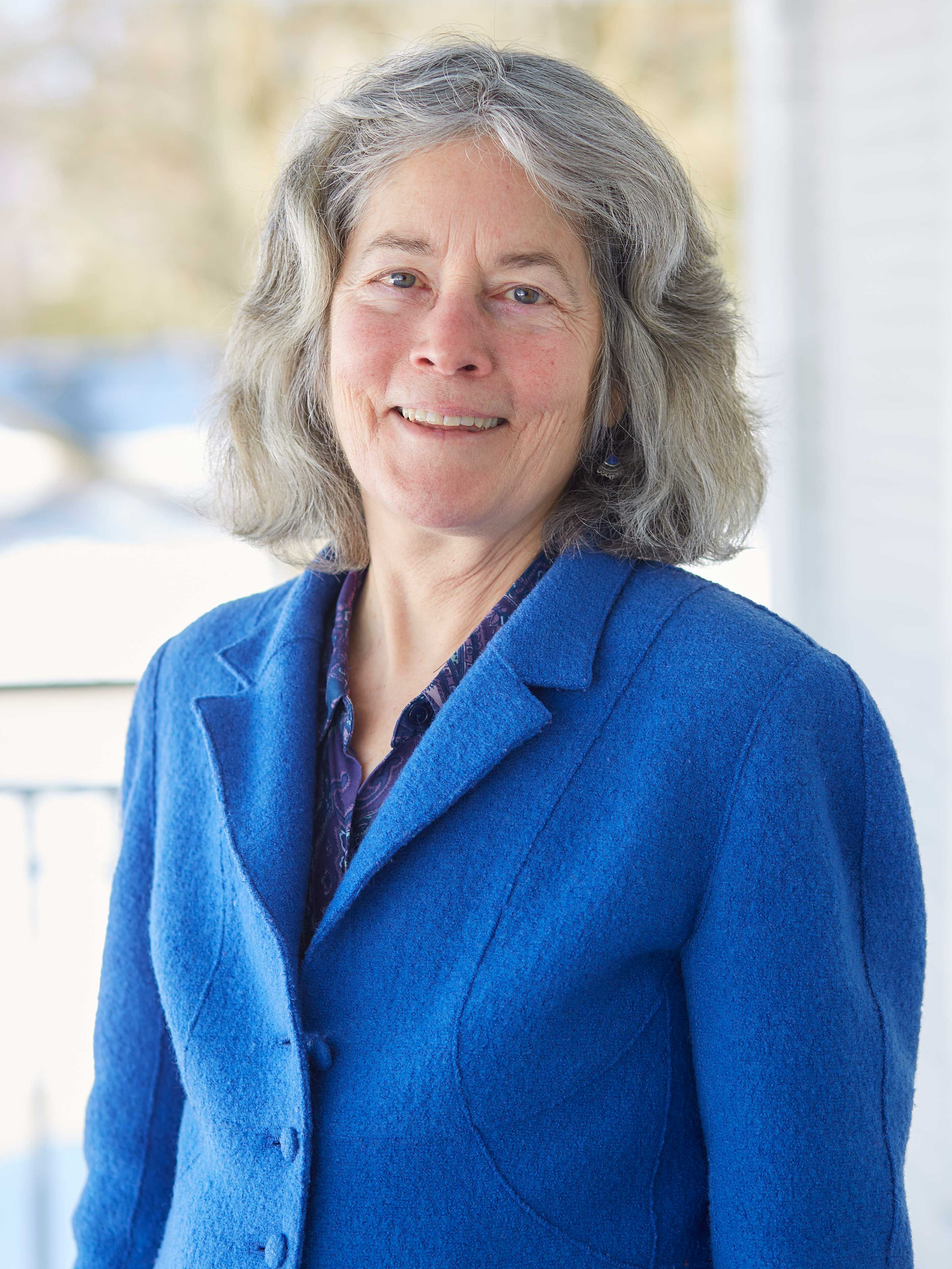
Dr. Molly Anderson
William R. Kenan Jr. Professor of Food Studies
Middlebury College, Vermont
VIEW SLIDES:
CLICK HERE TO VIEW VIDEO RECORDING
Keynote Description: Supply chains that provide food to the places where most people in the US and Canada shop are controlled by a shrinking number of corporations, which are degrading our democracy as well as eroding public awareness of traditional foods, foodways, and cooking skills. Food system transformation is essential. The shape of needed change is starting to emerge—solidarity economies, coops, agroecological production—but how can we work together under a common vision?
Molly Anderson is the William R. Kenan, Jr. Professor of Food Studies at Middlebury College in Vermont, where she teaches about hunger and food security, fixing food systems, and sustainability. She is especially interested in multi-actor collaborations for sustainable food systems, sustainability metrics and assessment, food system resilience, human rights in the food system, food security and the right to food in the US and other industrialized countries. She is also interested in bridging interests and concerns of academicians and community-based activists. She is involved in food system planning and analysis of solutions at different scales, from local to international. She participates in the regional Food Solutions New England network and the national Inter-Institutional Network for Food, Agriculture & Sustainability, and is a member of the International Panel of Experts on Sustainable Food Systems (IPES-Food). She was a Coordinating Lead Author on the International Assessment of Agricultural Knowledge, Science & Technology for Development (IAASTD) and served on the Board of the Community Food Security Coalition for 6 years. She has worked as a private consultant for domestic and international organizations, with Oxfam America, and at Tufts University, where she was the founding Director of the Agriculture, Food and Environment Graduate Program in the School of Nutrition Science & Policy and directed Tufts Institute of the Environment for 2 years. Molly earned an interdisciplinary Ph.D. in Systems Ecology from University of North Carolina at Chapel Hill and a B.S. and M.S. in natural resource management and a certificate in Latin American Studies from Colorado State University.
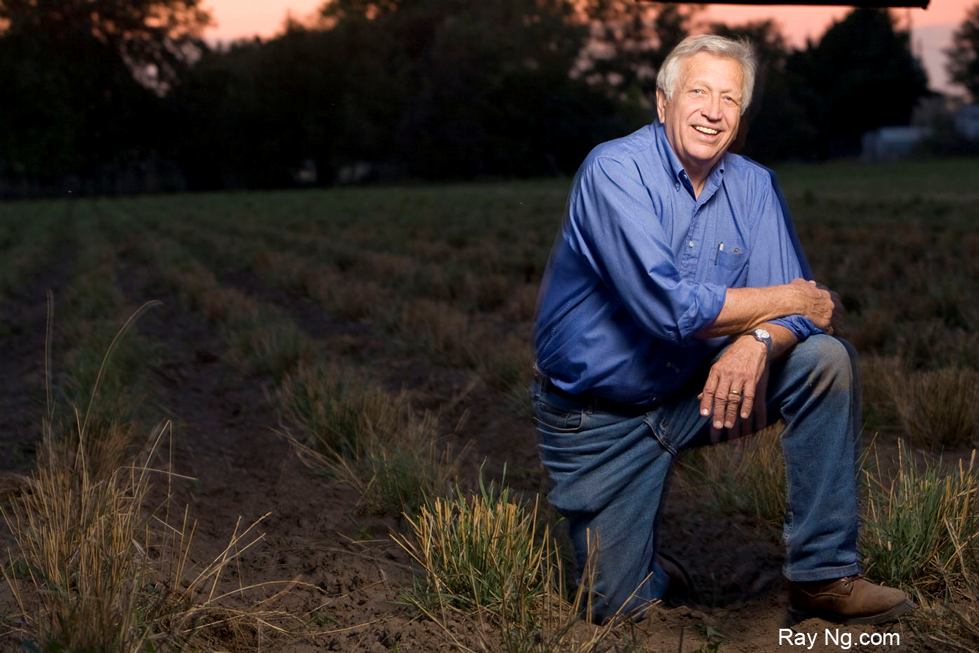
Dr. Wes Jackson
Co-Founder and President Emeritus of The Land Institute
Salina, Kansas
VIEW SLIDES:
CLICK HERE TO VIEW VIDEO RECORDING
Keynote Description: Most cultures have a story, a cosmology which addresses where they came from and what kind of thing they are. A moral code is usually attached. We now have scientifically verifiable information about our origins from the Big Bang to the present out of four primary fields: physics, chemistry, geology, and biology. Process, emergence, and top-down causation are replacing both static and reductionist thinking of the 1600s. One hopes that the new meaning, new symbols, and new insights will be helpful as we shape our minds and ways of being as we thoughtfully and seriously address the challenges facing humanity in the 21st century. “
Wes Jackson, Co-Founder and President Emeritus of The Land Institute, was born in 1936 on a farm near Topeka, Kansas. After attending Kansas Wesleyan (B.A Biology, 1958), he studied botany (M.A. University of Kansas, 1960) and genetics (Ph.D. North Carolina State University, 1967). He was a professor of biology at Kansas Wesleyan and later established the Environmental Studies department at California State University, Sacramento, where he became a tenured full professor. He resigned that position in 1976 and returned to Kansas to found The Land Institute.
Dr. Jackson’s writings include both papers and books. His most recent works, Nature as Measure (2011) and Consulting the Genius of the Place: An Ecological Approach to a New Agriculture (2010), were both published by Counterpoint Press. The Virtues of Ignorance: Complexity, Sustainability, and the Limits of Knowledge (2008) and Rooted in the Land: Essays on Community and Place (1996), were co-edited with William Vitek. Becoming Native to This Place, 1994, sketches his vision for the resettlement of America's rural communities. Altars of Unhewn Stone appeared in 1987 and Meeting the Expectations of the Land, edited with Wendell Berry and Bruce Colman, was published in 1984. New Roots for Agriculture, 1980, outlines the basis for the agricultural research at The Land Institute.
The work of The Land Institute has been featured extensively in the popular media including The Atlantic Monthly, Audubon, National Geographic, Time Magazine, Yes! Magazine, The MacNeil-Lehrer News Hour, and National Public Radio's "All Things Considered." Life magazine named Wes Jackson as one of 18 individuals they predict will be among the 100 "important Americans of the 20th century." In the November 2005 issue, Smithsonian named him one of “35 Who Made a Difference.” He was included in Rolling Stone’s “100 Agents of Change” in March, 2009 and in Ingram’s “50 Kansans You Should Know” in January 2011.
Wes Jackson is a recipient of the Pew Conservation Scholars award (1990), a MacArthur Fellowship (1992), Right Livelihood Award (Stockholm), known as “Alternative Nobel Prize” (2000), and the Louis Bromfield Award (2010). He has received five honorary doctorates. In 2007 he received the University of Kansas Distinguished Service Award and was one of the 2011 recipients of the University of Kansas College of Liberal Arts & Sciences’ Distinguished Alumni Awards. Garden Club of America awarded him the Elizabeth Craig Weaver Proctor Medal in 2012.
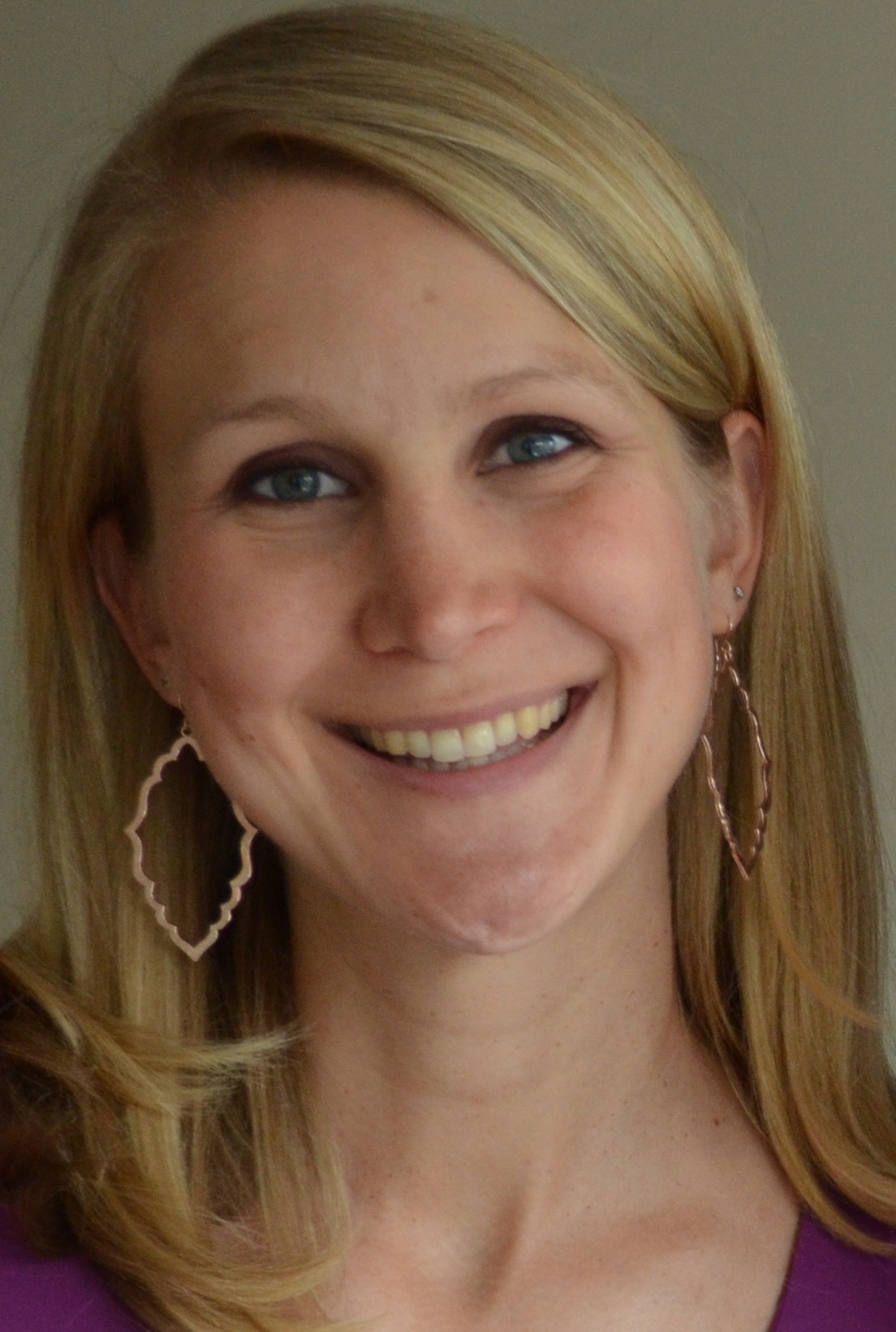
*Due to medical leave, Kimberley Hodsgon regrets not being able to participate in Place-Based Food Systems. This presentation has been cancelled.*
Kimberley Hodgson
Founder and Principal Consultant, Cultivating Healthy Places
Vancouver, BC
Kimberley Hodgson is a Vancouver-based, Canadian and North American community health and food systems planning expert. Over the past decade, Ms. Hodgson's work has focused on the research, design, and development of healthy, sustainable places. Through her diverse educational background and professional experiences she has engaged in collaborative planning and policy projects at the local, regional and national levels, and conducted numerous research and evaluation studies of local government policy.
Ms. Hodgson is the founder and principal of Cultivating Healthy Places, an international consulting business specializing in community health, social equity and resilient food systems planning. As a certified planner and health professional, her work focuses on conducting policy-relevant research and providing technical assistance to the public and private sectors related to the design and development of healthy, sustainable places. U.S. clients include: the National Academies of Sciences, Engineering, and Medicine; United States Department of Agriculture; The University at Buffalo; Metropolitan Institute at Virginia Tech; American Cancer Society Cancer Action Network; American Planning Association; Prevention Institute; Cleveland-Marshall College of Law; and Lawrence/Douglas County, KS. And, Canadian clients include: Vancouver, BC; Century Group; North Shore Table Matters; Vancouver Coastal Health; University of British Columbia, Centre for HIP Healthy and Mobility.
She was co-investigator of Growing Food Connections, a U.S. project to build local government capacity to strengthen community food systems; and former Senior Research Associate and Manager of the Planning and Community Health Research Center at the American Planning Association. She is the author of Planning for Food Access and Community-Based Food Systems and co-author of Urban Agriculture: Growing Healthy Sustainable Places.
Ms. Hodgson is a member of the Vancouver Food Policy Council and the Chair of the American Planning Association’s Food Systems Planning Interest Group. She holds an undergraduate degree from New York University in pre-medicine, a Master of Science in food policy and applied nutrition from Tufts University, and a Master of Urban and Regional Planning with a specialization in community health and sustainability from Virginia Tech.
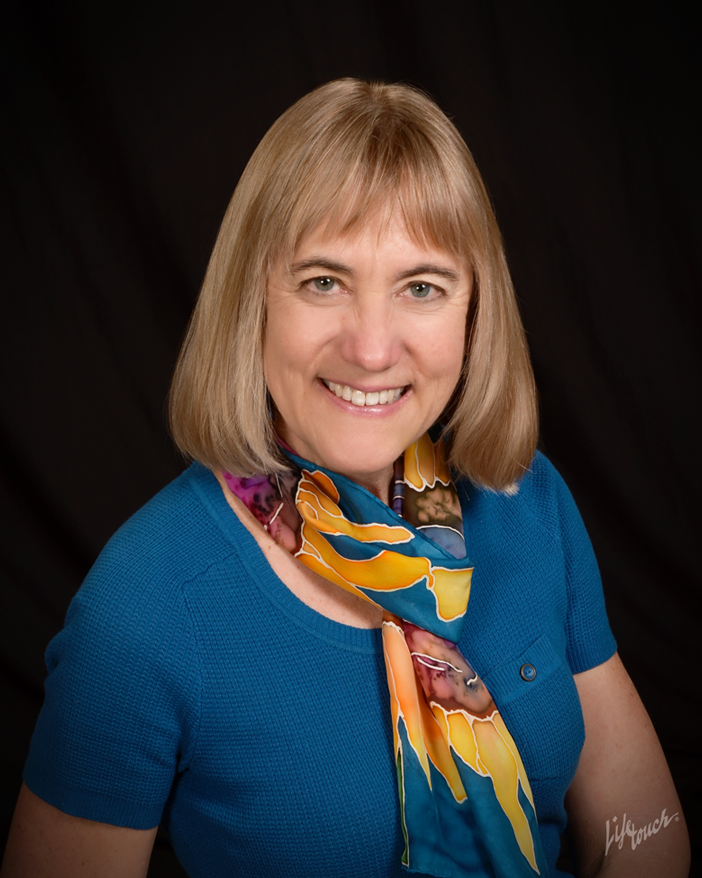
Dr. Gail Feenstra
Deputy Director, Food systems coordinator UC Sustainable Agriculture Research & Education Program
UC Davis Agricultural Sustainability Institute
University of California, Davis
VIEW SLIDES:
Keynote Description: This keynote will highlight challenges related to food system infrastructures and distribution systems and suggest how we might build the capacity of a place-based food system. We will consider frameworks from which to evaluate the dilemmas we face and possible solutions from experiences in California and the greater Pacific Northwest?
Gail Feenstra is the Deputy Director and the Food and Society Coordinator at the Sustainable Agriculture Research and Education Program (SAREP), University of California, Davis. Her research and outreach focuses on farm-to-school and farm-to-institution evaluation in California and nationally; regional food system distribution including food hubs; and supporting marketing opportunities for small and medium-sized producers. She also works with Cooperative Extension and community groups to support urban agriculture initiatives, including those involving youth participants and immigrant or refugee farmers. She collaborates with community organizations to conduct food systems assessments that can contribute to local food policies. She is currently exploring paths for effectively engaging policymakers in food system initiatives. Feenstra has a doctorate in nutrition education from Teachers College, Columbia University with an emphasis in public health.
Image
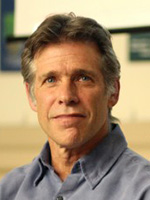
Dr. Eric Holt-Giménez

Executive Director, Food First, Author
Oakland, California
VIEW SLIDES:
CLICK TO VIEW VIDEO RECORDING PART 1
CLICK TO VIEW VIDEO RECORDING PART 2
Keynote Description: Though we produce 1 ½ times more than enough food for everyone, nearly a third of humanity goes hungry. The global food system also uses up 90% of the planet’s fresh water and contributes over a third of its greenhouse gases. To feed the world without destroying it, we must look at the political economy of our food—and to the social movements fighting for change.
Eric Holt-Giménez has been Executive Director of Food First since 2006. He is the editor of the Food First book Food Movements Unite! Strategies to Transform Our Food Systems; co-author of Food Rebellions! Crisis and the Hunger for Justice with Raj Patel and Annie Shattuck; and author of the book Campesino a Campesino: Voices from Latin America’s Farmer to Farmer Movement for Sustainable Agriculture, A Foodies's Guide to Capitalism and of many academic, magazine and news articles. Of Basque and Puerto Rican heritage, Eric grew up milking cows and pitching hay in Point Reyes, CA, where he learned that putting food on the table is hard work. After studying rural education and biology at the University of Oregon and Evergreen State College, he travelled through Mexico and Central America, where he was drawn to the simple life of small-scale farmers.
After spending over twenty-five years with the resourceful farmers of Central America and Mexico, Eric holds a deep appreciation for the value and power of building local food systems. But he has also become painfully aware that working locally is never going to be enough to bring about the larger changes that are needed: “Small farmers and underserved urban communities need changes in national food policies and international trade rules to have a fighting chance of feeding themselves and building healthy, prosperous livelihoods.”
Eric has a MSc. in International Agricultural Development from University of California at Davis and a PhD in Environmental Studies from the University of California at Santa Cruz . He has taught Development Studies at UC Berkeley, UC Santa Cruz, Boston University and the National Gastronomic University in Pollenzo, Italy. Prior to working at Food First, he served as the Latin America Program Manager for the Bank Information Center (BIC) in Washington DC.
In Eric’s words, “successful social movements are formed by integrating activism with livelihoods. These integrated movements create the sustained social pressure that produces political will—the key to changing the financial, governmental and market structures that presently work against sustainability.”
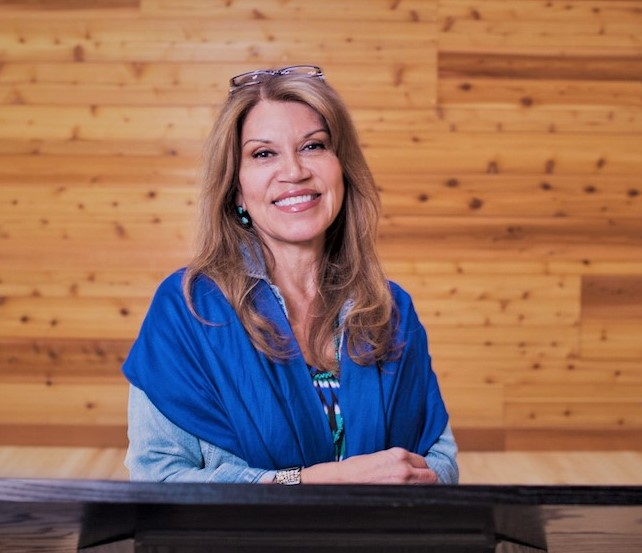
Dr. Charlotte Coté
Associate Professor, Department of American Indian/Native American Studies
University of Washington
VIEW SLIDES: ![]() Cote_“hishuk’ish tsawalk” Everything is One. Revitalizing Place-Based Indigenous Food Systems_PBFS 2018.pdf
Cote_“hishuk’ish tsawalk” Everything is One. Revitalizing Place-Based Indigenous Food Systems_PBFS 2018.pdf
Keynote description:
hishuk’ish tsawalk” – Everything is One. Revitalizing Place-Based Indigenous Food Systems through the enactment of Food Sovereignty.
This presentation examines how through the enactment of food sovereignty Indigenous peoples are revitalizing their place-based food systems by restoring and reaffirming healthy and sustainable relationships with their homelands and placing ancestral ecological knowledge at the center of these decolonization strategies.
Dr. Charlotte Coté is associate professor in the Department of American Indian Studies at the University of Washington. She serves as co-editor for the UW Press’ Indigenous Confluences series and co-hosts the UWTV’s Voices of the First People’s film series. Dr. Coté is the president of the Seattle-based Native-led nonprofit organization, Potlatch Fund.
Dr. Coté is from the Nuu-chah-nulth community of Tseshaht on the west coast of Vancouver Island. She has dedicated her personal and academic life to creating awareness around Indigenous health and wellness issues and has taken an active role in working with Indigenous peoples and communities in addressing health disparities through decolonization strategies and the enactment of food sovereignty centered in the revitalization of traditional foodways and ancestral ecological knowledge.
Dr. Coté is the author of Spirits of Our Whaling Ancestors. Revitalizing Makah and Nuu-chah-nulth Traditions, which raises issues concerning Indigenous self-determination, eco-colonialism, and food sovereignty. Her other publications include, “Food Sovereignty, Food Hegemony, and the Revitalization of Indigenous Whaling Practices” and “Indigenizing” Food Sovereignty: Revitalizing Indigenous Food Practices and Ecological Knowledges in Canada and the U.S..” Her forthcoming book is titled, “Uu-a-thluk (taking care of): Revitalizing Indigenous Foodways and Ancestral Ecological Knowledge. Restoring Health and Wellness in Northwest Coast Native Communities.”
Dr. Coté is the founder and chair of the UW’s “"The Living Breath of wǝɫǝbʔaltxʷ." Indigenous Foods and Ecological Knowledge” Symposium, an event that brings together individuals to build collaborative networks and to share knowledge and expertise on topics such as Indigenous foodways and ecological knowledge, Tribal food sovereignty and security initiatives, traditional foods and medicines, health and wellness, environmental justice, treaty rights, and climate change.
Fund.
Image
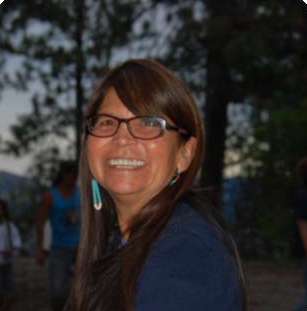
Pauline Terbasket

Executive Director, Okanagan Nation Alliance
West Kelowna, BC
VIEW SLIDES:
CLICK HERE TO VIEW VIDEO RECORDING
Keynote Description: Pauline Terbasket shares a story of ancestors once sustained by the land and an abundant fishery disrupted by settler expansion, wage economy hydro-electric dams, and large-scale agriculture that nearly ended the fishery until the Syilx Nation brought the salmon back, part of a people’s reconnecting to the land, asserting their title and rights, revitalizing, and relying on place-based foods.
suiki?st Pauline Terbasket is a proud Syilx woman, member of the Syilx Okanagan Nation, and Executive Director of the Okanagan Nation Alliance. When she first headed up the Okanagan Nation Alliance (ONA), the organization had a handful of employees. Now, after 20 years of innovation and management growth, she oversees an annual budget of 12M. Pauline is passionate about Nation building and Indigenous revitalization and has served on many volunteer boards, including a term as Chair of the First Peoples’ Cultural Foundation. A strong advocate for tackling the issues impeding the prosperity and wellness of Indigenous people, her work has addressed the full spectrum from children, youth, families, and elders to language, culture, health governance, and traditional foods. She loves to share the story of how the Syilx Nation spearheaded the return of the Okanagan sockeye salmon from the brink of extinction. Two of her current passions are speaking up for Indigenous food sovereignty around the world and championing the BCbased IndigenEYEZ empowerment program.
Image
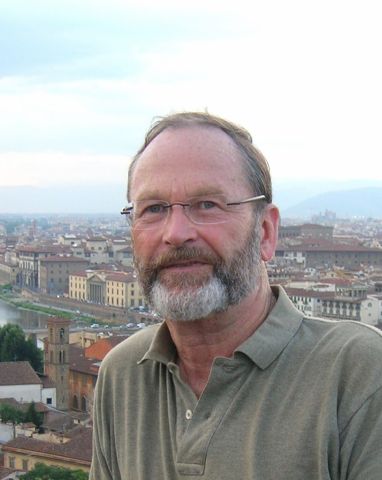
Dr. William Rees

Professor Emeritus, School of Community and Regional Planning
University of British Columbia
VIEW SLIDES:
CLICK HERE TO VIEW VIDEO RECORDING PART 1
CLICK HERE TO VIEW VIDEO RECORDING PART 2
Keynote description:
Why Place-based Food systems?
Techno-industrial society is founded on a ‘socially constructed’ myth of perpetual economic growth propelled by the cult of efficiency, expanding trade and continuous technological progress. But this neoliberal vision has produced an increasingly unsustainable entanglement of nations. Today, most countries are dependent on others for critical resources, including food, even as population growth and increased consumption deplete and pollute ecosystems essential for human survival. Climate change and energy uncertainty further threaten trade-dependent populations. Future food security thus lies in greater regional self-reliance through the protection of arable land and the re-localization of both primary agriculture and food processing.
William Rees is a human ecologist, ecological economist, Professor Emeritus and former Director of the University of British Columbia’s School of Community and Regional Planning in Vancouver, Canada, where his research and teaching focused on the biophysical prerequisites for sustainability in an era of accelerating ecological change. Within this envelope developed a special interest in ecologically-relevant metrics of sustainability and their interpretation in terms of complexity theory and behavioural ecology. Prof Rees is perhaps best known in ecological economics as the originator and co-developer of ‘ecological footprint analysis’. Widely adopted for sustainability assessments by Governments, NGOs and academics, the human ‘eco-footprint’ has arguably become world’s best-known sustainability indicator. Prof Rees’ most recent writing focuses on neuro-biological, cognitive and cultural barriers to sustainability, including human’s well-developed capacity for self-delusion. He has authored (or co-authored) more than 150 peer reviewed papers and book chapters, and numerous popular articles on humanity’s (un)sustainability conundrum. Active across disciplines, Dr Rees is a long-term member of the Global Ecological Integrity Group, a Fellow of the Post-Carbon Institute, a founding member and past President of the Canadian Society for Ecological Economics and founding Director of the OneEarth Initiative. The influence of Dr Rees’ work is widely recognized and awarded. He has lectured by invitation throughout North America and 25 other countries around the world; the Vancouver Sun named Prof Rees one of British Columbia’s top public intellectuals in 2000; in 2006 he was elected to the Royal Society of Canada and in 2007 he was awarded a prestigious Trudeau Foundation Fellowship.